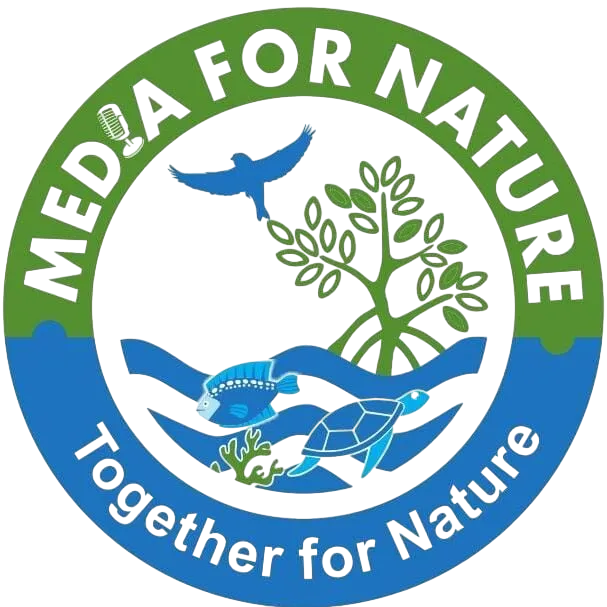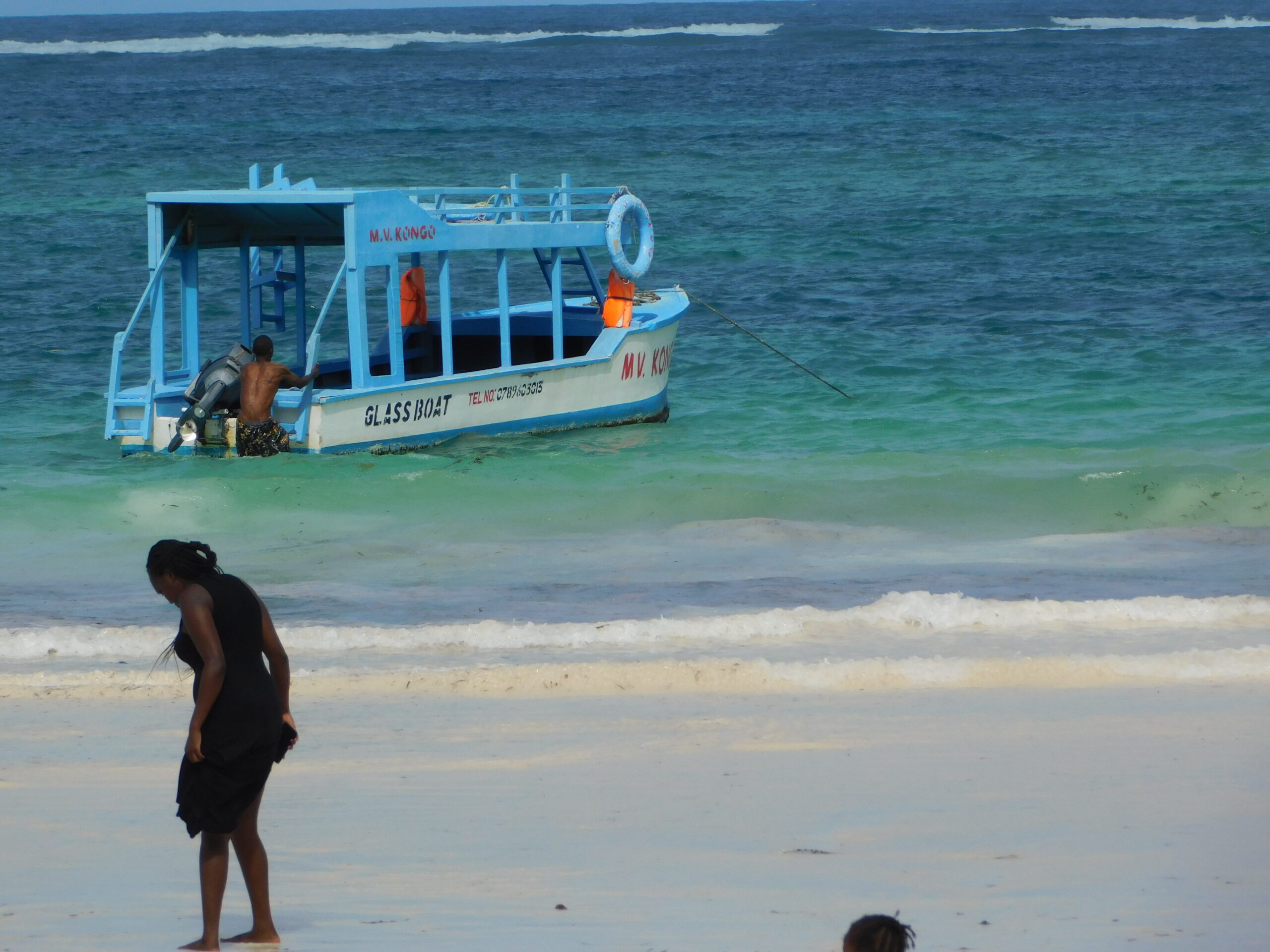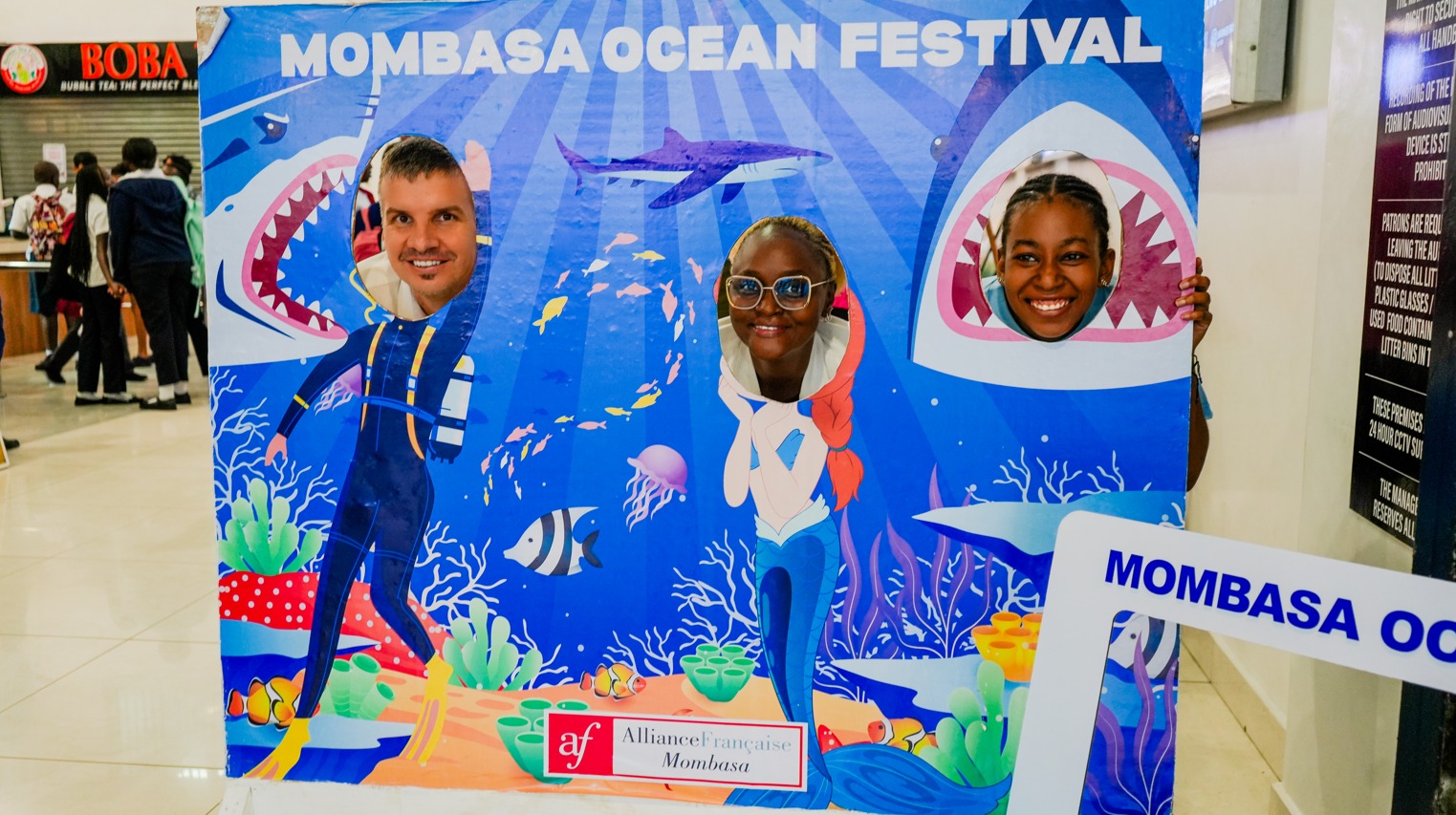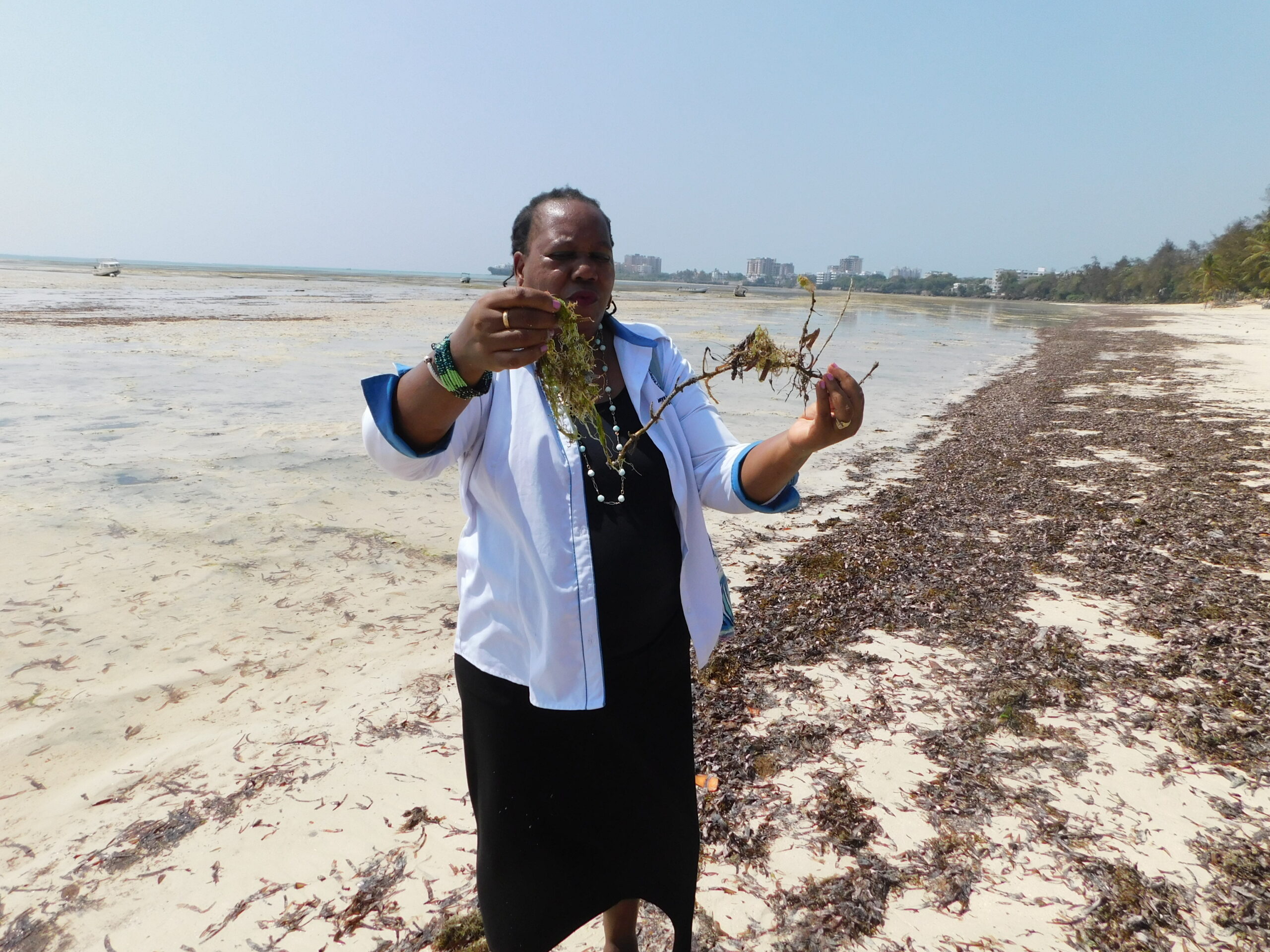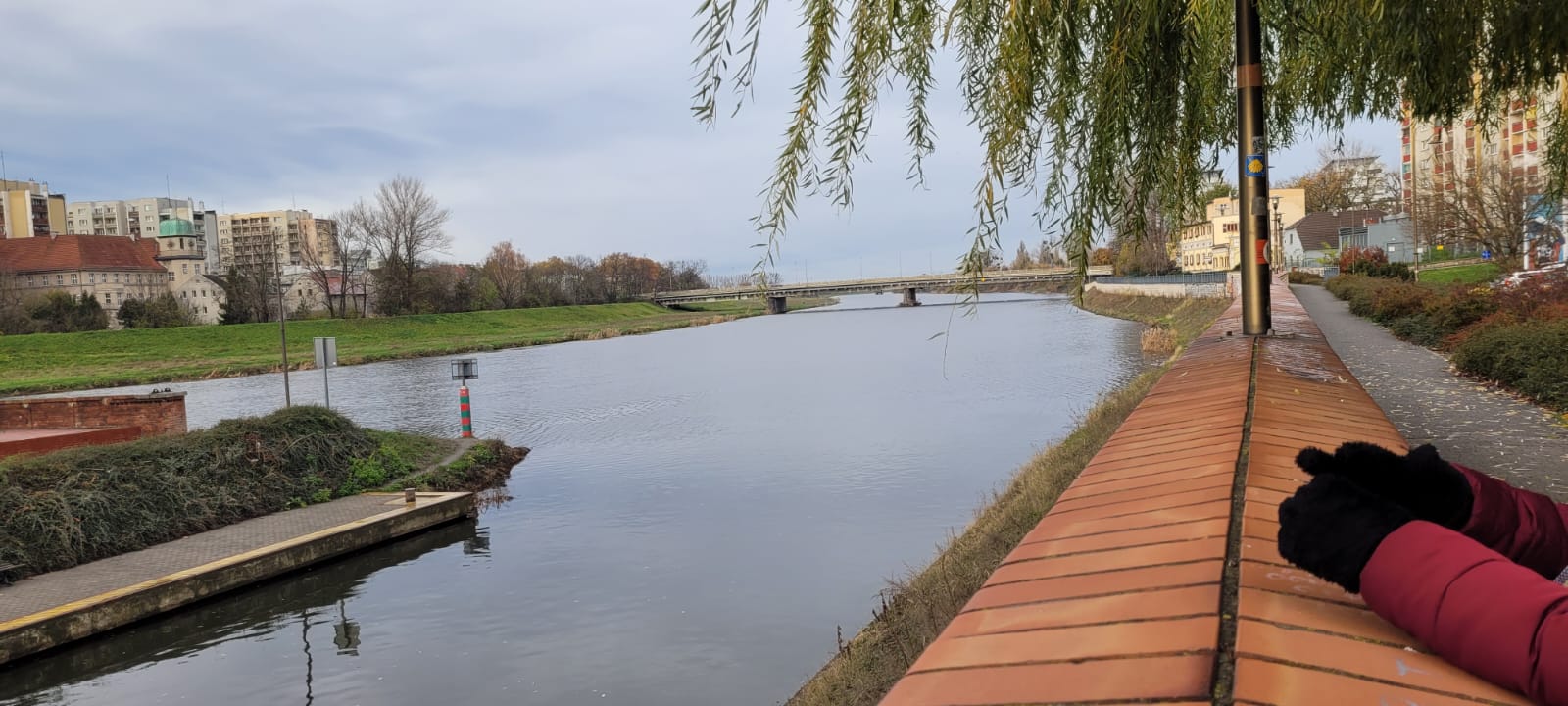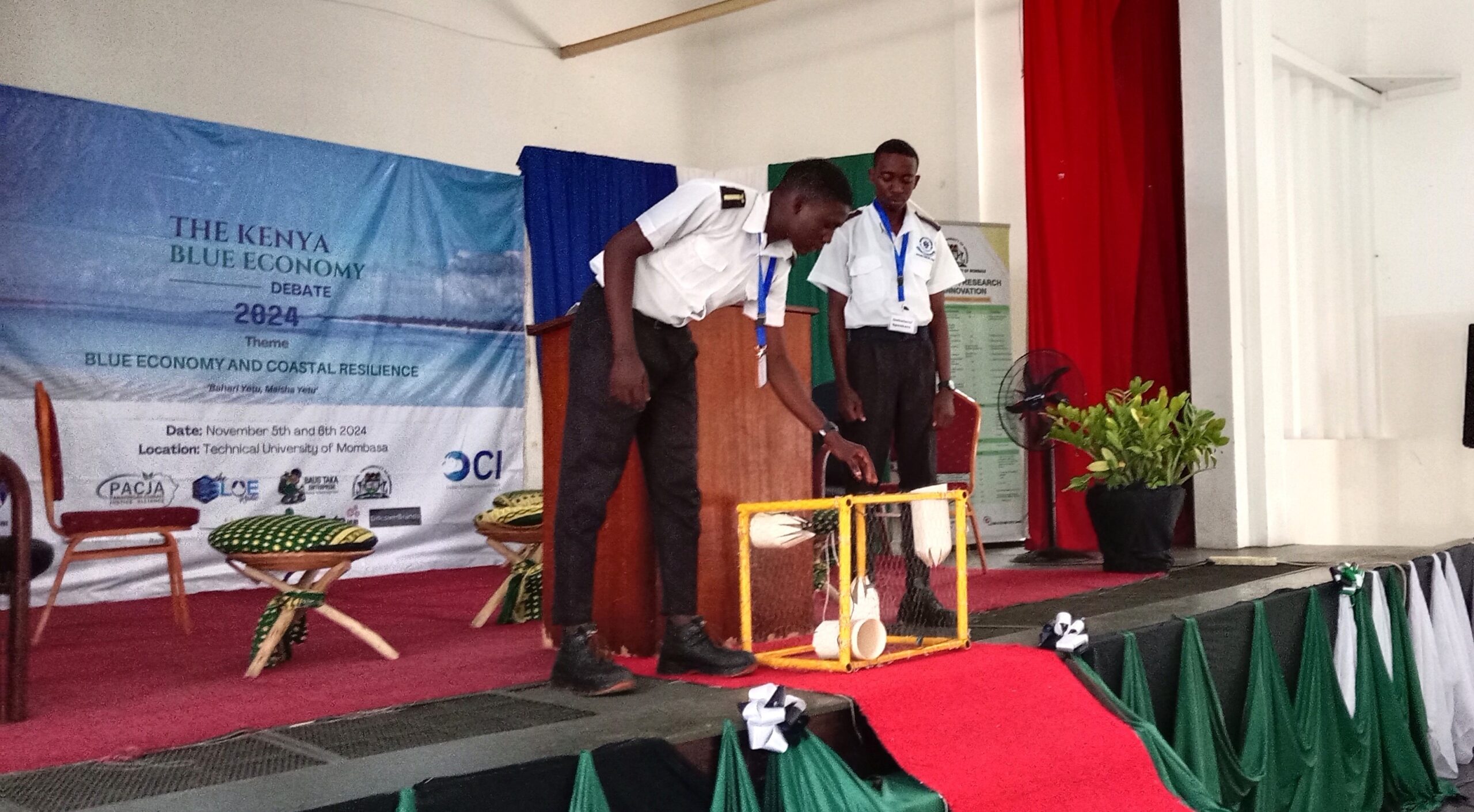One of the glass boats in Diani beach, Kwale County that have seen an increase in clients through the support of the Kaaribu Experiences project, one of the tour companies that benefitted from the Go Blue project funding to promote tourism/Photo By Mazera Ndurya
Traditionally, Mohamed Ali, who runs a massage parlor at the Diani beach, would just be relying on tourists who walk along the beach and his convincing language to get clients.
Although business was good in the early years of his career about 30 years ago, with time it became very tough and competitive especially with no formal marketing structures.
Today, Mohamed can comfortably say he gets clients who have been referred to his parlor by Hospitality Group East Africa Limited through their Kaaribu Experiences project, one of the tour companies that benefitted from the Go Blue project funding to promote tourism.
The Go Blue Project is a project of the Government of Kenya and the European Union to advance coastal development agenda in Kenya’s coastal region. The Go Blue Tourism and Cultural Heritage Component Action was funded by the European Union and co-funded by Camões, I.P., a Portuguese Development Corporation.
Kaaribu Experience directly markets and promotes niche cultural experiences offered by Kwale county community members to a global audience, leveraging on IT, while simultaneously enhancing the capacity of the local community to engage competitively globally.
The project involves creation, hosting and promotion of an online interactive system that enables locals to sell niche experiences and products directly to a global clientele. The project supports local groups through capacity building, packaging and marketing of local groups to a global audience.
Clementina Chao, a booking associate at Kaaribu Experiences said their role is to curate local experiences and help businesses market their enterprises online.
“We have more than 12 experiences that we have helped to market. Some of the businesses have little or no information about online or digital marketing. We have helped them in marketing and have started getting jobs/clients.
“The local experiences that we are helping in marketing include traditional dances (Giriama, Maasai, Digo and Duruma), glass boat rides, sunset Kongo River, Diani bites, and acrobatics.

“The biggest challenge they had was getting clients. They would just be relying on guests who go to the beach, woo them to go to their sites where they are either doing massage or take visitors on boat rides,” she said.
For glass boats operators, for instance, she said, they have so far received over 30 booking courtesy of the online marketing. Other groups such as Sunset Kongo River and Giriama dancers too, have received over 15 bookings.
“The main aspect of the project was to train the groups on how to market their products online-posting photos and videos and building their profiles online. It has been a learning experience for them through the project. Individually, I have also grown, I have also created my own experience,” said Clementina.

Massage parlors
Mohamed Ali, a masseuse operating along Diani beach said, “In the early years of my career, tourism was a booming industry with so many hotels running but the industry received a serious beating forcing many hotels to close down. At that time many guests were in hotels but today many are staying in cottages.
“We have repeat clients who occasionally come for our services, and with Kaaribu Experiences, we have been getting clients who are referred to us by them. Kaaribu is filling the gap that has been there with the slump of the industry. For eight months we have seen many guests coming and in a month we can get up to 10 clients from them,” said Mohamed.
He said the use of the internet for marketing has been a game changer in their business because there are clients who deal directly with them, giving them a competitive edge.
Glass boats
Although they did not get direct funding, their networking with Kaaribu Experiences has seen them grow through trainings and connecting with clients.
Mohamed Mwadzikobe, a boat captain at the Abahalo Glass boats Company said the experiences have made their business boom especially in the high tourist season.
“We do snorkeling in coral gardens and taking guests to small islands or sand banks for excursions. I have done this work for about nine years and I know the business is erratic, sometimes being affected by external forces such as the Covid-19 pandemic.
“The network with Kaaribu Experiences has helped us build our portfolio. We get clients sent directly from Kaaribu Experiences, we have received guests from Belgium, Denmark and many other countries and this has brought a lot of difference in our business,” he said.
Future plans
“Our company is the oldest but we need to have more boats because during high season we are strained and overwhelmed. We sell experience because we understand the biodiversity in the ocean and this is what brings most of our clients back on repeat trips.
“The guests are impressed by our knowledge about the marine ecosystem including the types of fish and their names. One particular attraction is witnessing feeding of the fish,” said Mwadzikobe.
Peter Kibe, the Director of Kaaribu Experiences, said that one of the challenges they faced was that many of the groups they supported struggled to quickly grasp the scope of the project.
“We are packaging all the experiences through a digital platform and many of them did not easily understand and it took a long time to package their experiences to be developed into products for tourists.

“There was a gap in service provision such as how they can make the visitors or clients satisfied with what they were offering,” said Kibe.
However, he said the success stories were quite encouraging and one of the key indicators was the increase in the number of bookings through the product that was developed.
“The whole project grant was 18,000 Euros with our contribution of about 20 percent,” said Kibe who founded the Hospitality Group East Africa Limited in 2016.The experiences arm was founded in 2020.
He said the funding from Camões helped them build the company’s capacity, including developing a website, training service providers, acquiring an office, and hiring a booking associate, with plans to extend their services throughout the entire coastal region.
“We are currently based in Ukunda-Kwale County but we are planning to upscale to other counties,” he said.
Interventions
The intervention by Camões emerged out of a document developed by Jumuiya ya Kaunti za Pwani(JKP) which is called Jumuiya 2030, the development blueprint of the six counties.
Tourism had been identified in the blueprint as one of the economic pillars of the coast region, identifying gaps and challenges that have hindered the development of tourism as a key economic pillar.
The impact that the different players in the tourism industry talk about go to explain the need for investment in innovation and digital marketing.
Judy Gona, Team Lead, Sustainable Travel and Tourism Africa (STTA), the organization that provided technical assistance to Camões, said one nog the gaps identified was inadequate framework for promotion, development of culture and heritage tourism in the coast region.
“There was a lack of innovative or inclusive tourism products that would allow for diversification anchored on culture and heritage as well as a weak link between mainstream tourism –mainly beach and coastal tourism and community based and other forms of tourism including cultural heritage.
“The project further aimed at addressing poor participation of local communities in tourism and cultural heritage value chain so even where we had culture being offered there was poor participation of the local community,” she said.
She said the funding from the Go Blue project helped in developing alternative products in the coast region such as digital marketing of tourism products, culture and heritage.
